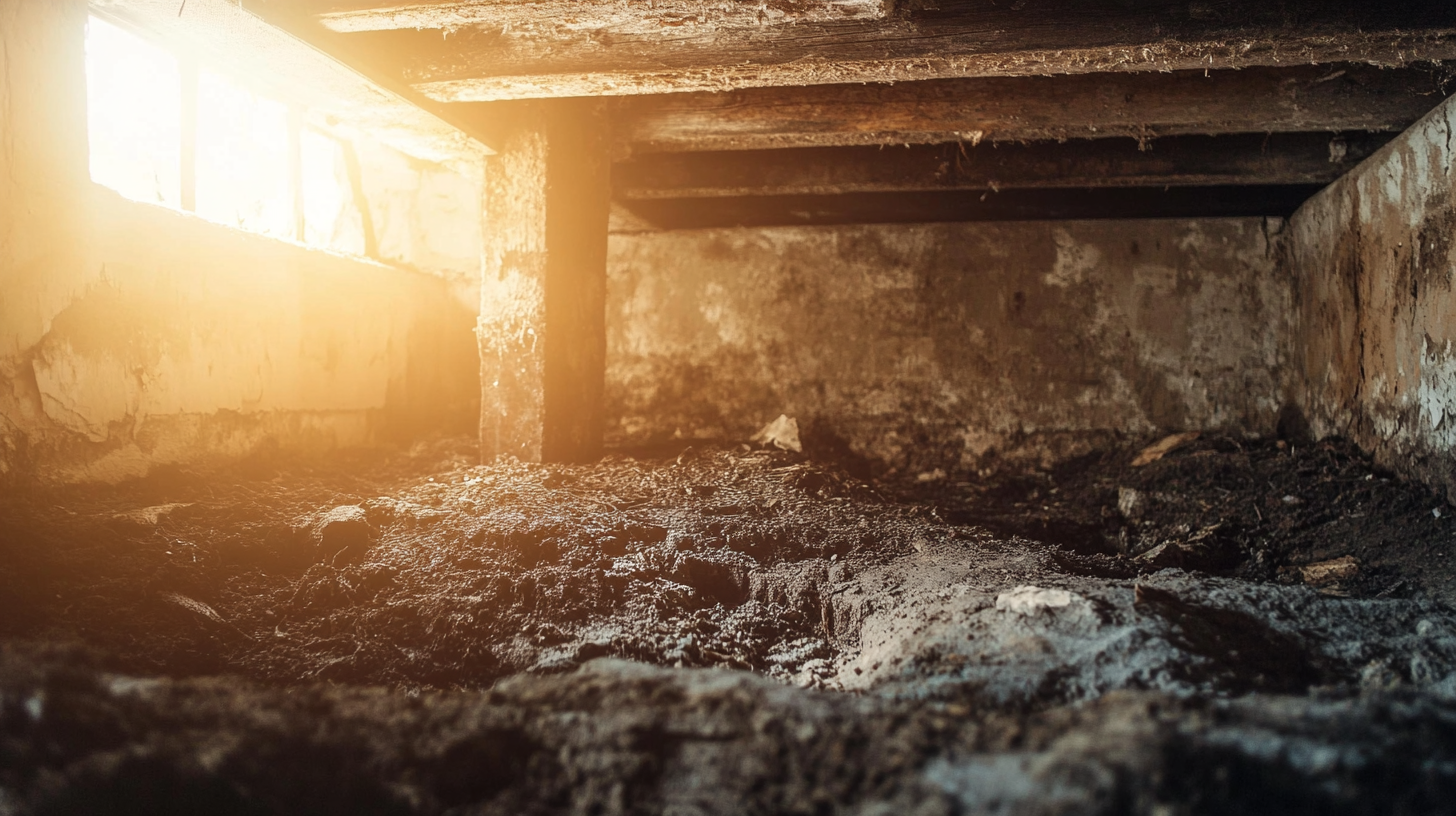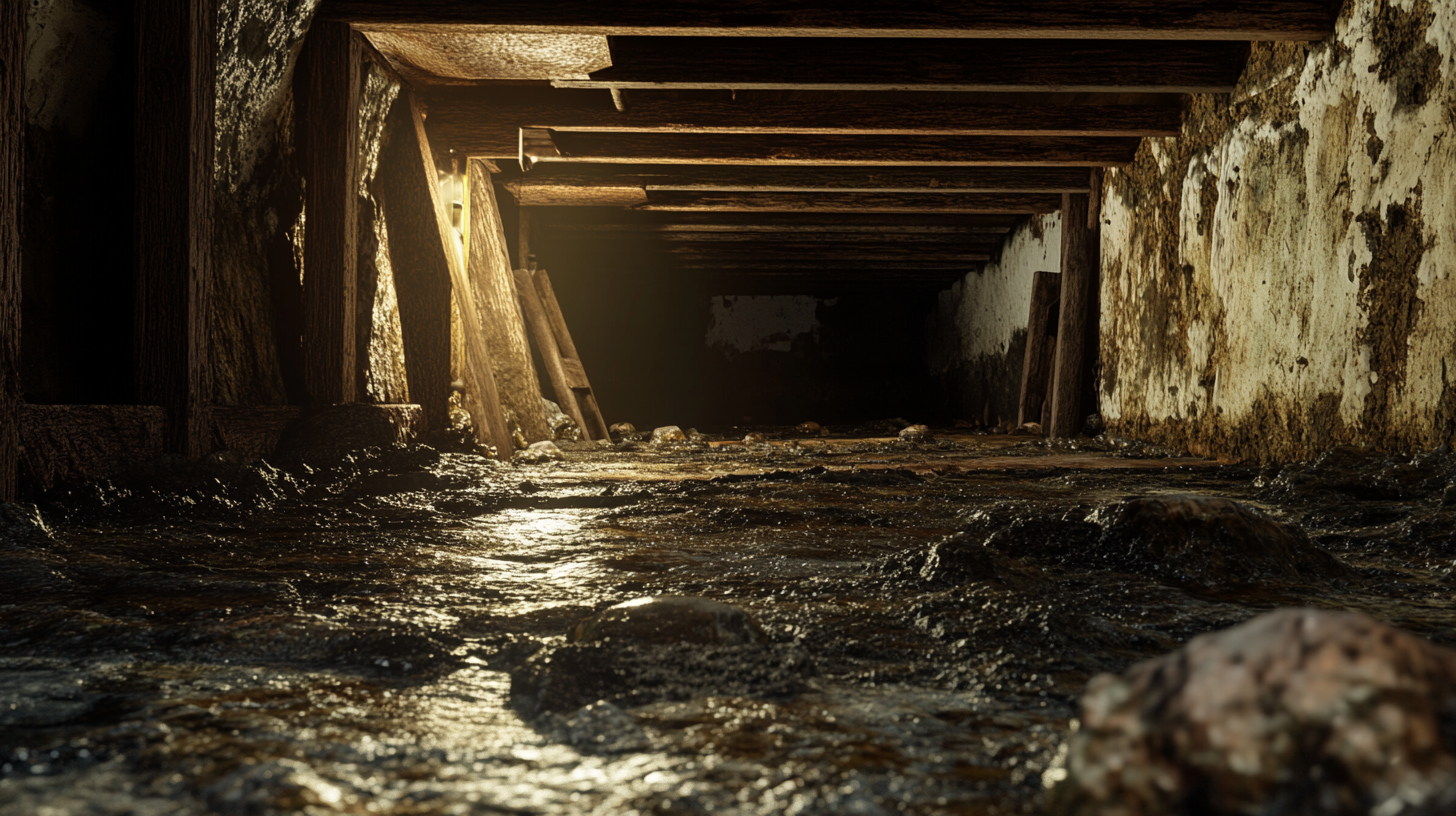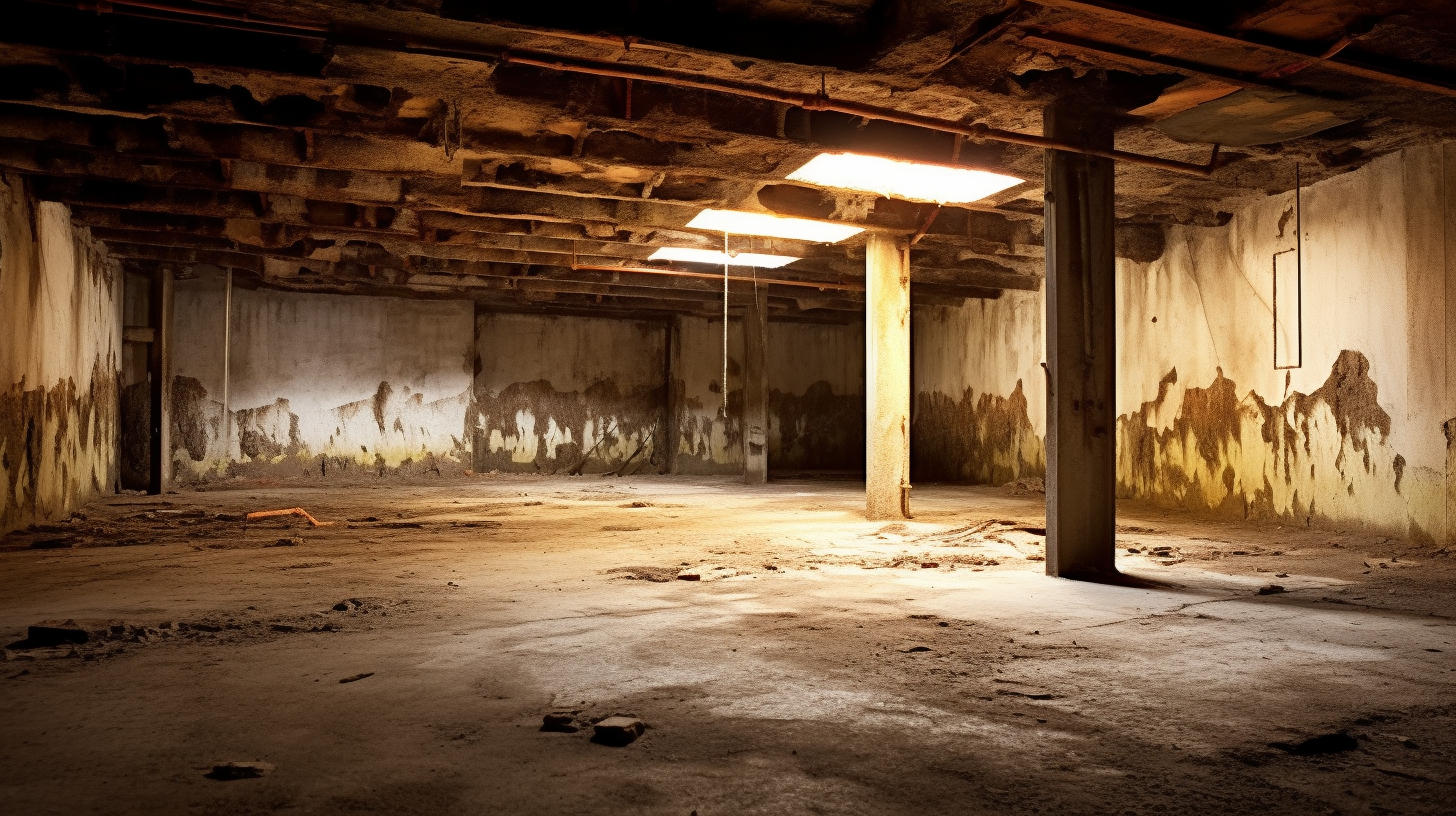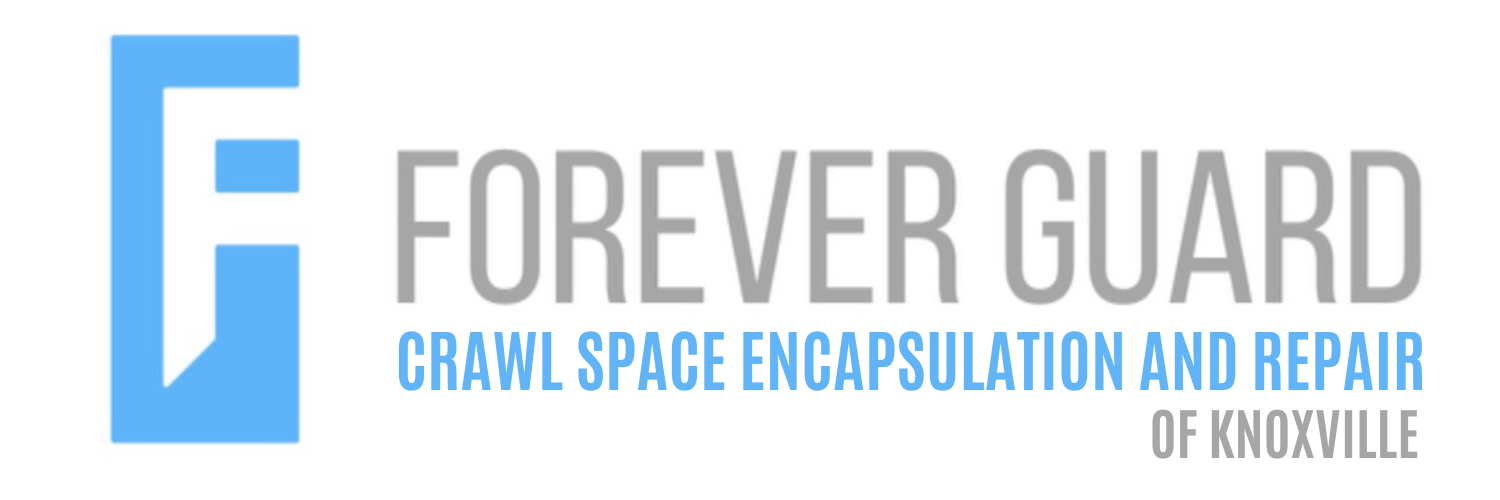Now IS THe Time To...

Crawl Space Services In Knoxville, TN
Stetson Howard: 865-432-6743
CRAWL SPACE ENCAPSULATION, REPAIR, WATERPROOFING & MOLD REMOVAL
No-Obligation, Free Inspections
No-Obligation Free Estimates
We Warranty All of Our Work
100% Satisfaction Guaranteed
Welcome to our in-depth exploration of the vital importance of professional waterproofing services. In the world of home maintenance and construction, waterproofing stands as a crucial defense mechanism, protecting structures from the damaging effects of water and moisture. While DIY approaches can be effective for minor issues, the expertise and precision offered by professional waterproofing services are often indispensable for ensuring comprehensive protection and long-term solutions.
In this article, we delve into the reasons why enlisting the services of professional water proofers is a wise investment for any homeowner or builder. From the complexities of diagnosing and addressing diverse waterproofing challenges to the technicalities of applying advanced materials and techniques, professional services offer a level of assurance and expertise that goes beyond the scope of typical DIY methods.
Scope of the Article
Our discussion will encompass various aspects of professional waterproofing services, including:
- Diagnosis and Assessment: Understanding how professionals evaluate and identify waterproofing needs, considering factors like building structure, environmental conditions, and potential risk areas.
- Advanced Techniques and Materials: Exploring the range of specialized materials and state-of-the-art techniques employed by professionals, tailored to address specific waterproofing challenges.
- Long-Term Benefits and Guarantees: Highlighting the long-term advantages of professional waterproofing, such as enhanced durability, compliance with building codes, and often, warranties or guarantees on the work performed.
By the end of this article, you will gain a comprehensive understanding of the value that professional waterproofing services bring to the table, equipping you with the knowledge to make informed decisions for your property's waterproofing needs.
The Need for Professional Waterproofing
In the realm of building maintenance and construction, the role of waterproofing is paramount. This section will explore the essence of waterproofing and its critical importance, and why professional services are often a necessary choice over DIY approaches.
Understanding Waterproofing
Explanation of What Waterproofing Is and Why It's Crucial:
Waterproofing is the process of making a structure resistant to water ingress, protecting it from potential damage caused by moisture and water exposure. This is crucial for maintaining the structural integrity of buildings, preventing issues like mold growth, and avoiding costly repairs due to water damage. Effective waterproofing preserves the longevity and safety of a structure, making it an essential aspect of building maintenance.
Differentiating Between DIY and Professional Approaches:
While DIY waterproofing can be suitable for minor tasks, professional waterproofing is necessary for more complex projects. Professional services offer a comprehensive approach, starting from thorough assessment and diagnosis to the application of specialized techniques. Unlike DIY methods, professional waterproofing addresses not just the symptoms but the root cause of water ingress, ensuring a more durable and effective solution.
Benefits of Professional Services
Expertise and Experience:
Professional water proofers bring a wealth of expertise and experience. They are equipped to handle a variety of waterproofing challenges, from simple to complex, and can provide tailored solutions based on the specific needs of a building. Their experience enables them to accurately diagnose issues and predict potential problem areas, ensuring a thorough and effective waterproofing strategy.
Access to Advanced Materials and Techniques:
Professionals have access to advanced materials and state-of-the-art waterproofing techniques that may not be available to the average DIY enthusiast. These materials and methods are often more effective, durable, and suitable for a wide range of conditions and building types. Professionals also stay updated with the latest advancements in waterproofing technology, allowing them to offer the most current and effective solutions.
Long-term Reliability and Warranties:
One of the significant advantages of professional waterproofing services is the long-term reliability they offer. Professional work often comes with warranties or guarantees, providing peace of mind and protection for your investment. This long-term reliability not only ensures the safety and integrity of your structure but also can be more cost-effective in the long run, as it minimizes the need for frequent repairs or reapplications.
Types of Professional Waterproofing Services
Professional waterproofing services offer a range of solutions tailored to different needs and structures. Understanding the types of services available can help you make informed decisions about protecting your property. This section will explore the various professional waterproofing services, including exterior and interior waterproofing, as well as specialized solutions for specific areas.
Exterior Waterproofing
Methods and Materials Used:
Exterior waterproofing involves creating a barrier on the outside of a building to prevent water from entering. Common methods include the application of waterproof coatings or membranes, installation of drainage systems, and the use of sealants. Materials used in exterior waterproofing are typically robust and durable, designed to withstand harsh environmental conditions.
Situations Where Exterior Waterproofing is Necessary:
Exterior waterproofing is essential in situations where there is a high risk of groundwater seeping into the building, such as in areas with a high water table or prone to heavy rainfall. It's also crucial for buildings with basement spaces or those made with materials susceptible to water damage.
Interior Waterproofing
Techniques for Interior Spaces:
Interior waterproofing focuses on preventing moisture from causing damage inside the building. Techniques include the application of waterproof paints or coatings to walls and floors, the use of sealants around windows and doors, and in some cases, the installation of internal drainage systems to manage water ingress.
Ideal Scenarios for Interior Waterproofing:
Interior waterproofing is particularly important in areas of a building that are prone to dampness, such as basements, bathrooms, and kitchens. It's also vital in older buildings where exterior waterproofing may not be feasible, or as an additional layer of protection in buildings located in wet climates.
Custom Solutions for Unique Structures:
Professional waterproofing services also offer custom solutions for buildings with unique architectural features or specific waterproofing challenges. This might include historical buildings, structures with complex designs, or buildings made with unusual materials. These custom solutions are designed to address the specific waterproofing needs while preserving the integrity and aesthetics of the structure.
Choosing the Right Waterproofing Contractor
Selecting the right waterproofing contractor is a critical decision that can significantly affect the longevity and safety of your property. This section will guide you through the key factors to consider when choosing a contractor, ensuring that you make an informed and confident decision.
What to Look For
Credentials and Experience:
- Licensing and Certification: Ensure the contractor is licensed and certified to perform waterproofing services. This is a basic indicator of their legitimacy and adherence to industry standards.
- Experience: Look for a contractor with extensive experience, particularly in projects similar to yours. Experienced contractors are more likely to provide reliable and effective solutions.
- Insurance: Verify that the contractor has appropriate insurance coverage, which protects you in case of accidents or damage during the project.
Customer Reviews and Testimonials:
- Online Reviews: Check online platforms for customer reviews. Pay attention to comments about the quality of work, professionalism, and reliability.
- Testimonials: Ask the contractor for references or testimonials from previous clients. If possible, speak directly with these clients to get firsthand feedback on their experience.
- Portfolio of Work: Request to see a portfolio of their previous projects. This can give you an idea of their expertise and the quality of their work.
Questions to Ask
List of Important Questions to Ask Before Hiring:
- What is your approach to a project like mine?
- Can you provide a detailed breakdown of the costs?
- What type of waterproofing materials do you recommend and why?
- How long will the project take, and what is the timeline?
- What warranties or guarantees do you offer on your work?
- How do you handle unexpected issues or additional costs that arise during the project?
- Can you provide references or examples of similar projects you’ve completed?
Understanding Quotes and Pricing Structures:
- Detailed Quotes: Ensure the quote is detailed and includes all aspects of the project, such as materials, labor, and any additional costs.
- Pricing Structure: Understand the pricing structure – whether it’s a fixed price, time and materials, or another format. Clarify any potential additional costs.
- Payment Terms: Discuss and understand the payment terms, including the schedule and any deposits required.
The Waterproofing Process Explained
Understanding the waterproofing process is crucial for homeowners and builders alike. This comprehensive guide will walk you through each step of the process, from the initial assessment by professionals to the planning, preparation, and execution stages. By understanding these steps, you can ensure that your property receives the most effective waterproofing treatment.
Initial Assessment
How Professionals Assess Waterproofing Needs:
- Site Inspection: Professionals start with a thorough inspection of the property, focusing on areas prone to water ingress, such as basements, walls, and roofs.
- Identifying Problem Areas: They look for signs of existing water damage, such as mold, dampness, or structural deterioration.
- Evaluating Environmental Factors: Factors like local climate, soil conditions, and water table levels are considered to understand the potential for future water issues.
Importance of a Thorough Evaluation:
A comprehensive evaluation is critical in developing an effective waterproofing plan. It helps in identifying the root causes of water issues, rather than just addressing the symptoms. This ensures that the waterproofing solutions implemented are tailored to the specific needs of the property, thereby enhancing their effectiveness and longevity.
Planning and Preparation
Steps Taken Before the Actual Waterproofing Begins:
Developing a Waterproofing Plan: Based on the assessment, a detailed plan is formulated, outlining the methods and materials to be used.
Preparing the Site: This includes cleaning the areas to be waterproofed, repairing any structural damage, and ensuring the site is ready for waterproofing application.
Importance of Proper Planning:
Proper planning is essential to ensure the waterproofing process is efficient and effective. It helps in minimizing disruptions, ensuring that all necessary materials are available, and setting clear timelines for the project. Good planning also helps in anticipating and mitigating potential challenges that may arise during the waterproofing process..
Aftercare and Maintenance
After the completion of a waterproofing project, understanding the aftercare and maintenance aspects is crucial to ensure the longevity and effectiveness of the work done. This section will guide you through the kind of post-service support you can expect, including warranties and guarantees, and provide essential maintenance tips to keep your waterproofing in top condition.
Post-Service Support
What Kind of Support to Expect After the Service:
- Follow-Up Inspections: Many waterproofing contractors offer follow-up inspections after the completion of the project to ensure that the waterproofing is performing as expected.
- Customer Service: Good contractors will provide ongoing customer service, offering answers to your questions and addressing any concerns that may arise post-installation.
Warranties and Guarantees:
- Warranty Coverage: Understand the warranty provided by your contractor. This typically covers the materials used and the labor involved in the waterproofing process.
- Duration and Terms: Pay attention to the duration of the warranty and what specific terms and conditions are included. Some warranties may have limitations or require regular maintenance to remain valid.
Maintenance Tips
How to Maintain the Waterproofing Work:
- Regular Inspections: Conduct regular inspections of the waterproofed areas, especially after heavy rains or extreme weather conditions, to ensure the waterproofing is intact.
- Keeping the Area Clean: Ensure that areas like drains and gutters are clean and free of debris to prevent water buildup.
- Prompt Repairs: Address any minor issues, like small cracks or leaks, as soon as they are noticed to prevent them from escalating into bigger problems.
Signs to Watch for Potential Issues:
- Visible Damage: Look for signs of wear and tear or damage to the waterproofing layer.
- Water Stains or Dampness: Be vigilant for any new water stains, dampness, or mold growth, as these can indicate a breach in the waterproofing.
- Odors: A musty or moldy smell can be a sign of hidden moisture problems.
As we wrap up our discussion on professional waterproofing services, it's crucial to reemphasize the significance of this choice in the broader context of building maintenance and protection. Waterproofing is not just a routine task; it's a vital investment in the longevity and safety of your property. Professional waterproofing services bring a level of expertise, precision, and reliability that is often unattainable through DIY methods.
The complexities involved in correctly diagnosing, planning, and executing waterproofing projects make the role of professional services indispensable. From the initial assessment to the final application and aftercare, professional water proofers ensure that every aspect of the process is handled with the utmost care and attention to detail. This comprehensive approach not only addresses immediate waterproofing needs but also anticipates future challenges, thereby offering a more holistic solution to water ingress problems.
Encouragement to Prioritize Quality and Expertise in Waterproofing Projects
In light of the critical role that waterproofing plays in protecting your property, prioritizing quality and expertise in these projects cannot be overstated. Opting for professional waterproofing services may involve a higher initial investment, but the long-term benefits – including enhanced durability, compliance with building codes, and peace of mind – far outweigh the costs.
When selecting a waterproofing contractor, focus on their credentials, experience, and the quality of materials they use. A reputable and skilled waterproofing professional can provide tailored solutions that are specifically designed to meet the unique needs of your property, ensuring effective and lasting protection against water damage.
In conclusion, we strongly encourage property owners to view professional waterproofing services not as an expense, but as a valuable investment in their property's future. By choosing quality and expertise, you are taking a significant step towards safeguarding your property against the myriad of issues that water damage can cause, thereby ensuring its integrity and value for years to come.
FAQs
-
What Are Professional Waterproofing Services?
Professional waterproofing services involve expert assessment, planning, and application of waterproofing techniques to protect buildings from water damage. These services are provided by skilled contractors who use specialized materials and methods to ensure effective and long-lasting waterproofing.
-
Why Should I Choose Professional Waterproofing Over DIY?
Professional waterproofing offers expertise, precision, and access to advanced materials and techniques that are typically beyond the scope of DIY projects. Professionals can accurately diagnose complex issues, provide tailored solutions, and ensure compliance with building codes, offering a more reliable and long-term solution.
-
What Types of Waterproofing Services Do Professionals Offer?
Professionals offer a range of waterproofing services, including exterior and interior waterproofing, basement waterproofing, roof waterproofing, and specialized solutions for unique structures. They can handle various challenges, from simple damp-proofing to complex waterproofing systems.
-
How Do I Choose the Right Waterproofing Contractor?
Look for a contractor with proper licensing, significant experience, positive customer reviews, and a portfolio of past work. Ensure they provide a detailed quote and understand their warranty offerings. It's also important to ask about their approach to your specific waterproofing needs.
-
What Should I Expect in Terms of Cost and Duration for Professional Waterproofing?
The cost and duration of professional waterproofing vary based on the project's complexity, the materials used, and the property's size. A reputable contractor should provide a transparent quote and timeline. While professional services may have a higher initial cost compared to DIY, they offer greater long-term value and effectiveness.
Recent Blog Posts
Crawl Space News



Schedule Your FREE Crawl Space Evaluation!
Did you know YOU DON'T HAVE TO BE HOME for us to provide you with your 100% FREE crawl space inspection and report?
Call Us Today at: 865-432-6743
Forever Guard Crawl Space Encapsulation and Repair of Knoxville is a specialty crawl space waterproofing company that services the greater Knoxville, TN and surrounding areas.
Business Hours
Sunday: 7:00 AM - 7:00 PM
Monday: 7:00 AM - 7:00 PM
Tuesday: 7:00 AM - 7:00 PM
Wednesday: 7:00 AM - 7:00 PM
Thursday: 7:00 AM - 7:00 PM
Friday: 7:00 AM - 7:00 PM
Saturday: 7:00 AM - 7:00 PM
legal info
All Rights Reserved | Forever Guard Crawl Space Encapsulation and Repair of Knoxville




